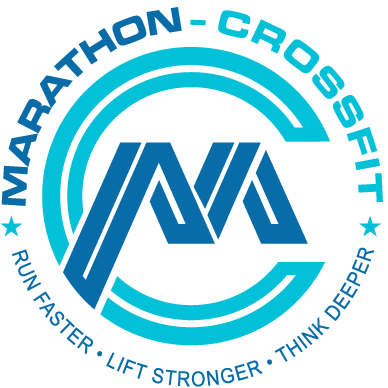Magnesium Glycinate: Supplement Guide
Originally published on HVMN by Jamie Witherby
This is a series of blog post which I publish in collaboration with HVMN about keto. Me wife and I had good success on the keto diet. We used it to lose weight before our wedding. Now we batch cook on weekends to be ready for the entire week. Here also some ideas of supplements.
You know those nights. The ones you wake up in the middle of, clutching your knees to rock yourself back asleep. It’s not a nightmare that roused you. It’s something much, much worse: leg cramps.
The pain is sudden, searing, and seemingly out of your control. But those calf contractions could be trying to tell you something. Muscle cramps are frequently a sign of magnesium deficiency in healthy adults.1,2,3
Table of Contents
Magnesium Deficiency is Everywhere
Magnesium Sufficiency for Overall Health
Restored Rest for the Magnesium Deficient
Putting the Glycinate in Magnesium Glycinate
Raise Your Inhibitions: Glycine in Nervous System Function
Bounce Back with Glycine: Tissue Treatment
Magnesium + Glycinate are the The Perfect Pair
In this article, we’ll discuss what magnesium is, why it’s crucial for optimal health, and how pairing it with glycinate makes it the ideal supplement form.
Meet Magnesium
Scoring an atomic number of twelve, magnesium (Mg) is a silver-white metal from the alkaline family. Its strong-yet-lightweight structure, high melting point (1,202°F), and brilliant white flame make it a hot choice for alloys in the aerospace industry, especially gearboxes for helicopters and other aircrafts.
Magnesium is the ninth most abundant element on the planet and the fourth most abundant cation (positively charged ion) in our bodies.
Over half of our magnesium lives in our bones, another quarter in our muscles, and the rest in our soft tissues and extracellular fluid (fluid outside the cells).4
You also eat this metal every day. Or at least you should. Magnesium is a critical cofactor for over 300 enzyme systems, including synthesizing proteins, regulating blood pressure, and controlling blood sugar levels. You probably didn’t know you were so dependent on this mineral, but you can’t do much without it; it’s required for aerobic and anaerobic energy production. Want to keep your healthy bone structure? Magnesium. Need to synthesize some RNA? Magnesium. Care to maintain nerve and muscle function? Magnesium.5 You get the picture. It’s an understatement to say magnesium has some pretty crucial health benefits.
Unfortunately, it’s not as abundant in our diets as it should be. The Food and Drug Administration estimates that up to 68% of people in the United States are magnesium deficient.
Knowing which supplement to take is hard
Let us help with our science-backed guides built by experts. Subscribe to learn more.
Magnesium Deficiency is Everywhere
Before we dive into the problems of magnesium deficiency, let’s review some foods that are great forms of magnesium. Spinach, Swiss chard, and other dark greens are a saturated source of your daily magnesium. Go nutty with almonds, Brazil nuts, and cashews, too. Fiber-rich choices include beans, legumes, and filling whole grains. And the food that really puts the “yum” in magnesium? Dark chocolate.
But even if you’re eating all your leafy greens and fibrous beans to get the essential nutrient, the declining magnesium levels in the soil they were grown in puts you at risk for magnesium deficiency.6
Magnesium levels in soil are declining because of modern farming practices;6 overuse of the soil disallows it from restoring its natural mineral content before being used to grow food again. By the time vegetables are washed and transported, their meager magnesium content is laughable.7
Other produce processing techniques can strip away the food’s magnesium levels, like bleaching whole grains and overcooking greens.8 Even common medications such as antacids, antibiotics, and diuretics can affect the body’s ability to absorb magnesium or increase your renal (kidney) excretions of the precious mineral.3
The good news? The metal can be found in regular old drinking water—up to a tenth of your daily magnesium intake. The bad news? Purification practices are a little too efficient, so most of the magnesium content never even crosses your lips. But stick with water for a better chance of getting your recommended intake as coffee and alcohol increase your body’s demand for it.3
Hypomagnamesia Symptoms
If you’re worried that you could have low magnesium levels, here are some medical conditions and symptoms of magnesium deficiency:4
- Fatigue
- Sleep disturbances
- Depression
- Muscle cramps
- Muscle weakness
- High blood pressure
- High blood sugar
- Asthma
- Impaired exercise performance
- Irregular heartbeat
Take another look at the list—how many of these have you experienced just in the past month or so?
The problem with identifying hypomagnamesia (magnesium deficiency) is that it tends to be asymptomatic until levels drop dramatically. And even when the symptoms are present, they can easily be attributed to other factors.
On the flipside, if you’re worried that you may be getting too much magnesium from your diet, fear not; your kidneys can take care of any excess magnesium.3
Magnesium Sufficiency for Overall Health
Sufficient magnesium intake has numerous benefits. Grab a handful of spinach and a piece of dark chocolate for good measure, and let’s discuss the positives of supplementing with magnesium.
Restored Rest for the Magnesium Deficient
Let’s return to our list of hypomagnamesia symptoms. One of the big ticket items is sleep disturbances. Supplementing with magnesium has been shown to improve sleep qualityin individuals with low magnesium levels.9,10
A 2002 study found that taking magnesium before bed led to an increase in slow wave sleep, which is the deepest phase of sleep characterized by delta waves and non-rapid eye movement (NREM). If you’ve ever been caught sleepwalking, you can thank slow wave sleep for its zombie-style effects on your muscles.10
Reduced Inflammatory Stress
Unfortunately, those sleep disturbances come at a greater cost than dark circles under eyelids and general crankiness. Inadequate sleep is associated with increases in multiple inflammatory biomarkers.9 These proteins or enzymes are the biomarkers that point to systemic inflammation. One of the most infamous inflammatory biomarkers is the C-reactive protein (CRP), which is an effective predictor of cardiac morbidity. As you lose sleep from a lack of magnesium, these CRPs increase, meaning you’re inflamed.11
Persistent inflammation can lead to serious chronic inflammatory systemic diseases (CIDs), such as: rheumatoid arthritis, multiple sclerosis, and systemic lupus erythematosus—an autoimmune disease in which the immune system mistakenly perceives healthy tissues as a threat and begins attacking them.12 Of course, these serious disorders have complicated etiologies based on genetics as well as environment.
You can probably guess an initiative: taking magnesium can reduce the inflammation.
A 2010 study with sleep and magnesium-deprived adults found that supplementing with magnesium improved sleeping patterns and decreased the amount of CRP biomarkers found in their plasma. Their levels of inflammation went down, and which has been associated with a reduced risk for developing CIDs.9
Putting the Glycinate in Magnesium Glycinate
We covered magnesium, but we haven’t even talked about the other half of this powerful combo: glycinate.
Glycinate is the salt form of glycine, a non-essential amino acid that plays an essential role in both the peripheral and central nervous system (CNS). Glycine is considered to be a non-essential amino acid because the body naturally produces it, but research says our metabolic demands are higher than our abilities to produce it.13 Once chronic, glycine deficiency can lead to impairment of nutrient metabolism and impairment of nervous system function.14
Raise Your Inhibitions: Glycine in Nervous System Function
Along with gamma-Aminobutyric acid, glycine is one of the main inhibitory transmitters of the CNS. Glycine activates brain and spinal cord receptors to allow chloride into the CNS, which will inhibit the cells. Inhibition is imperative because it allows precise thoughts, movements, and attention to alter or stop a neurological response, all of which are required for normal motor and behavioral functioning.15 Glycine may also play a role in the synchronization of our circadian rhythms to influence our internal clocks.16
Bounce Back with Glycine: Tissue Treatment
Glycine is a precursor to the production of the ingredient in skin-tightening products: collagen. Collagen is the connective tissue component providing structure for your skin, cartilage, and tendons. Because glycine is so tiny (the smallest amino acid), it’s able to fit between the tight intersections of larger amino acids forming the collagen proteins. This flexibility is part of what gives your skin that youthful bounce.17
Better Sleep with Glycine
A 2006 study observed that glycine can also greatly improve sleep quality.16
But this amino acid doesn’t promise to put you to sleep as soon as your head hits the pillow or induce the deepest REM cycles. Instead, glycine has a greater effect on how you’ll feel once you get up.18 Glycine ingestion can alleviate fatigue, increase liveliness, and generate a clear-headed feeling upon waking.19
One of the possible mechanisms for ushering you into dreamland is glycine’s thermoregulatory effects.
Glycine can lower your body’s core temperature, which is one of your body’s natural mechanisms in preparation of sleep.20
Bonus round: glycine is considered safer than traditional sleeping drugs. Even relatively high doses yield no serious side effects.19
Magnesium + Glycinate are the The Perfect Pair
Magnesium glycinate is an organic magnesium salt created by combining magnesium with the amino acid, glycine.
Combine one sleep-improving mineral salt with a sleep-improving amino acid and you get—a sleep improving supplement. But it’s the details that matter. Taking magnesium in the glycinate, or salt, form is correlated with better absorption of magnesium than other common supplement forms, such as magnesium oxide.21
When you’re looking for a magnesium supplement and want to experience all the benefits of magnesium in the most efficient way, you could look for two different supplements, remember to take both before bed, inevitably forget and miss out on the benefits of supplementing with magnesium and glycinate together. Or simply take Yawn.
Yawn is a non-habit forming sleep aid featuring magnesium glycinate, L-theanine, L-glycine, and melatonin for increased sleep quality and a calming effect.
Remember that the glycinate will also help you enjoy more clarity and less fatigue when it’s time to get up, allowing you to start the day refreshed and ready to go. And because Yawn uses the most bioavailable form of magnesium, your body will be able to absorb it more easily and enjoy more of its effects.22
Magnesium glycinate supplements are usually taken in doses from 100mg - 400mg with no severe side effects reported. A high amount of magnesium is recommended for pregnant women.23 Some minor side effects include gastrointestinal issues such as bloating and diarrhea. As always, discuss your desire to begin magnesium supplementation with your healthcare professional for appropriate medical advice.
A Powerful Duo
Magnesium is an essential mineral the body uses for a majority of its basic functions, including producing the energy it takes to read this article.
Modern food processing makes it very difficult to consume the necessary daily amount, causing roughly two-thirds of the American population to be magnesium deficient, so you may need to keep an eye on your magnesium intake. Low levels of magnesium can contribute to health problems such as chronic inflammatory systemic diseases (CIDs).
The mineral and amino acid combination of magnesium glycinate can reduce the chronic disease-causing inflammation and health conditions and provide a better overall sleepexperience without the adverse effects of other sleeping aids. While supplements can compensate for lack of training, using one to optimize recovery can help with better performance.
Scientific Citations
|
1. |
|
|
2. |
|
|
3. |
|
|
4. |
|
|
5. |
|
|
6. |
|
|
7. |
|
|
8. |
|
|
9. |
|
|
10. |
|
|
11. |
|
|
12. |
|
|
13. |
|
|
14. |
|
|
15. |
|
|
16. |
|
|
17. |
|
|
18. |
|
|
19. |
|
|
20. |
|
|
21. |
|
|
22. |
|
|
23. |


